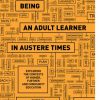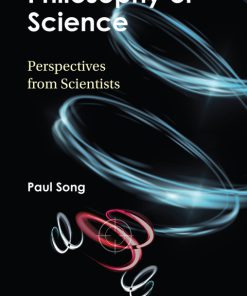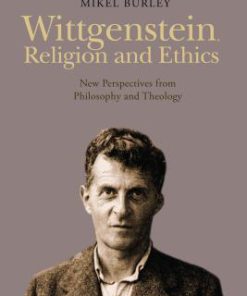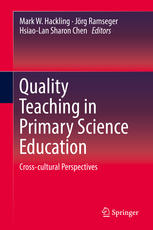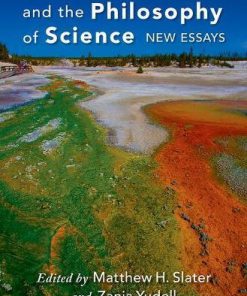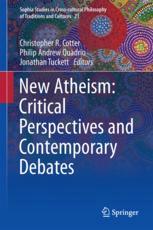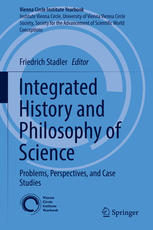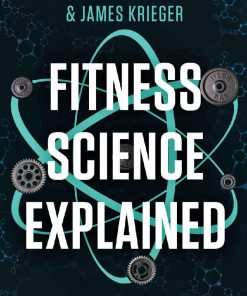History, Philosophy and Science Teaching New Perspectives 1st Edition by Michael Matthews 3319626161 9783319626161
$50.00 Original price was: $50.00.$25.00Current price is: $25.00.
History, Philosophy and Science Teaching: New Perspectives 1st Edition by Michael R. Matthews – Ebook PDF Instant Download/DeliveryISBN: 3319626161, 9783319626161
Full download History, Philosophy and Science Teaching: New Perspectives 1st Edition after payment.
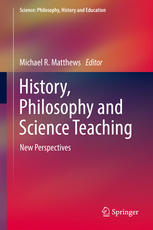
Product details:
ISBN-10 : 3319626161
ISBN-13 : 9783319626161
Author: Michael R. Matthews
This anthology opens new perspectives in the domain of history, philosophy, and science teaching research. Its four sections are: first, science, culture and education; second, the teaching and learning of science; third, curriculum development and justification; and fourth, indoctrination. The first group of essays deal with the neglected topic of science education and the Enlightenment tradition. These essays show that many core commitments of modern science education have their roots in this tradition, and consequently all can benefit from a more informed awareness of its strengths and weaknesses. Other essays address research on leaning and teaching from the perspectives of social epistemology and educational psychology. Included here is the first ever English translation of Ernst Mach’s most influential 1890 paper on ‘The Psychological and Logical Moment in Natural Science Teaching’. This paper launched the influential Machian tradition in education. Other essays address concrete cases of the utilisation of history and philosophy in the development and justification of school science curricula. These are instances of the supportive relation of HPS&ST research to curriculum theorising.
History, Philosophy and Science Teaching: New Perspectives 1st table of contents:
Part I: Science, Culture and Education
Chapter 1: Feng Shui: Educational Responsibilities and Opportunities
1.1 Introduction
1.2 The Cultural Contribution of Science Education
1.3 Academic Neglect of Feng Shui
1.4 Chi and Feng Shui
1.5 Feng Shui Practice
1.6 Commercial Feng Shui
1.7 The Origin and Elaboration of Feng Shui
1.8 Two Historical Encounters Between Feng Shui and the Western Scientific Worldview
1.8.1 Matteo Ricci
1.8.2 Ernst Johann Eitel
1.8.2.1 Feng Shui as a ‘Black Art’
1.8.2.2 Chinese Proto-Science and Avoidance of Experiment
1.8.2.3 Astronomical Problems for Feng Shui
1.8.2.4 Eitel’s Appraisal of Feng Shui and the Educational Task in China
1.9 Feng Shui, Education and Modernization of Chinese Culture
1.10 Feng Shui and the Chinese Communist Party
1.11 Teaching About Energy and Appraising Feng Shui
1.12 Scientific Testing of Chi Claims
1.13 Feng Shui as Pseudoscience
1.14 Conclusion
References
Chapter 2: The Enlightenment: Truths Behind a Misleading Abstraction
2.1 What Is Enlightenment?
2.2 Science and The Enlightenment
2.3 What Is It to Be Enlightened?
2.4 The Enlightenment Versus the Epidemiology of Being Enlightened
2.5 Early Attempts to Define ‘Enlightenment’: Moses Mendelssohn and Immanuel Kant
2.6 Some Modern Critics of “The Enlightenment”
2.7 Conclusion
References
Chapter 3: The Enlightenment Tradition and Science Education in Turkey
3.1 Introduction
3.2 The Ottoman Context
3.3 Eighteenth Century Reforms in the Ottoman Empire
3.4 Nineteenth Century Reforms in the Ottoman Empire
3.5 First Half of Twentieth Century: A New State
3.6 Military Coups: 1960–1980
3.7 Towards a Market Economy: 1980–2010
3.8 Conclusion
References
Chapter 4: Cultural Studies of Science Education: An Appraisal
4.1 Introduction
4.1.1 Anti-science in Contemporary U.S. Culture
4.1.2 Cultural Studies of Science: Re-conceptualizing Science and Science Education
4.2 Postmodernism and the Cultural Studies of Science Education
4.2.1 The Postmodern World-View
4.2.2 Re-constructing Science
4.2.3 The “Sciences” of Culturally Distinct Peoples
4.2.3.1 Indigenous Knowledges
4.2.3.2 Seeking Alternatives to the Scientific Way of Knowing
4.2.4 Constructivism and Scientific Knowledge
4.2.4.1 Social Justice and CSSE
4.3 The Basics of Modern Science
4.3.1 Scientific Inquiry, Correspondence Theory of Truth, and Knowledge
4.3.2 Reality and the Objects of Modern Science
4.3.3 Reality, as “What Is”, and Truth
4.4 Conclusion
References
Part II: Teaching and Learning Science
Chapter 5: Epistemic Practices and Science Education
5.1 Education Goals for Science and Engineering Education
5.2 History, Philosophy, and Sociology of Science (HPS) and Epistemic Practices
5.2.1 Illustrative Examples of Epistemic Practices from Education Informed by Science Studies
5.2.2 Emerging Themes from Study of Epistemic Practices in Science and Education
5.2.2.1 Contexts of Knowledge Claims
5.2.2.2 Epistemic Subject as Local Endogenous Community
5.3 Epistemic Practices in Science and Engineering Education
5.3.1 Research Programs Regarding Epistemic Practices in Science Education
5.3.1.1 Nuanced Understandings of Language and Its Relationships to Meaning
5.3.1.2 Disciplinarity and Variation in Epistemic Practices
5.3.1.3 Student Learning About Science Through Engagement in and with Science
5.3.1.4 Broadening Uses of Knowledge to Social and Ethical Domains
5.4 Characteristics of Epistemic Practice in Science and Engineering Education
5.5 Research Directions for the Study of Epistemic Practices in Education
5.6 Conclusion
References
Chapter 6: Strategies for Learning Nature of Science Knowledge: A Perspective from Educational P
6.1 Introduction
6.2 Influence of Epistemological Stance on Science Learning
6.3 Views of NOS for Curricular Purposes
6.4 Effective Teaching of NOS Knowledge
6.5 Defining Explicit and Reflective Approaches
6.6 Explicit and Reflective Approaches to NOS Instruction
6.7 A Focus on Student Learning in NOS
6.8 Useful Learning Strategies from Educational Psychology
6.9 Self-Regulated Learning Theory
6.10 Subprocesses of the Phases of Self-Regulated Learning
6.11 Parallels Between SRL and Explicit and Reflective NOS Instruction
6.11.1 Parallels Between Explicit NOS Instruction and SRL Theory
6.11.1.1 Goal Setting and Strategic Planning
6.11.1.2 SRL Forethought Subprocesses Not Addressed in Explicit NOS Instruction
6.11.2 Performance Phase Subprocesses
6.11.2.1 SRL Performance Phase Subprocesses Not Addressed in Explicit NOS Instruction
6.11.3 Parallels Between Reflective NOS Instruction and SRL Theory
6.11.3.1 Self-Evaluation and Adaptivity
6.11.3.2 SRL Performance Phase Subprocesses Not Addressed in Explicit NOS Instruction
6.12 Categories of NOS That Are Supported by SRL Theory-Based Curriculum
6.13 Results of Using SRL of NOS in the Classroom
6.14 Conclusion
References
Chapter 7: About the Psychological and Logical Moment in Natural Science Teaching (1890)
Part III: Curriculum Development and Justification
Chapter 8: Scientific Knowledge as a Culture: A Paradigm for Meaningful Teaching and Learning o
8.1 Introduction
8.2 Knowledge as a Culture
8.3 Cultural Content Knowledge Advantages
8.3.1 Scientific Revolution and History of Physics
8.3.2 Theories Relationship
8.3.3 Students’ Learning
8.3.4 Physics Curriculum
8.3.5 Students’ Typology
8.4 The Ways to Provide Cultural Content Knowledge
8.4.1 CCK-Based Curriculum
8.4.2 Conceptual Excursus
8.4.2.1 The Concept of Weight
8.4.2.2 The Concept of Optical Image
8.4.3 Summative Lecture
8.4.3.1 Findings of the Experiment
8.5 Epistemology and Considering Knowledge as a Culture
8.6 Objectivity of Scientific Knowledge
8.7 Conclusion
References
Chapter 9: Integrating Science Education Research and History and Philosophy of Science in Devel
9.1 Introduction
9.2 The Integrated Approach to Curriculum Design
9.2.1 History of Science (HS): Adopting Joule’s Approach
9.2.2 Science: Interpreting the First Law of Thermodynamics and Energy Conservation
9.2.3 Philosophy of Science (PS): The Meaning of Scientific Concepts and Theory-Experiment Relat
9.2.3.1 Addressing Scientific Concepts in Relation to Their Definitions
9.2.3.2 Addressing Experiment-Theory Relationships
9.2.3.3 Implications for Energy Curriculum Design
9.2.4 Science Education Research (SER): Studying Students’ and Teachers’ Pertinent Knowledge an
9.3 Teachers’ Concept-Image of Energy
9.4 Curriculum Design Decisions
9.4.1 Central Observations
9.4.2 Didactical Decisions
9.4.3 Example: Different Definitions Imply Different Approaches to Teaching Energy Related to Moti
9.5 Implementation
9.6 Conclusion
References
Chapter 10: Teaching Evolution: Criticism of Common Justifications and the Proposal of a More W
10.1 Introduction
10.2 Scientific Literacy and the Utility/Relevance Argument
10.3 The Practical Utility Justification for Evolution Education
10.4 The Democracy Justification
10.5 Evolution Literacy Is an Essential Part of Scientific Literacy in Modern Society
10.6 Taking the Measure of the Foundational, Literacy, and Aesthetic Justifications
10.7 Current Practice, Implications, and Further Research
10.8 Conclusion
References
Part IV: Indoctrination and Science Education
Chapter 11: Science Education, Indoctrination, and the Hidden Curriculum
11.1 Introduction
11.2 Indoctrination: The Concept
11.3 Indoctrination and Science Education
11.3.1 Indoctrination in Relation to the Teaching of Scientific Concepts and Models
11.3.2 Indoctrination in Relation to Controversial, Value Based Issues
11.3.3 Indoctrination in Relation to Teaching of the Nature of Science
11.4 Indoctrination Without Intention
11.5 The Hidden Curriculum in the Teaching of Science: A Focus on Images of Science
11.5.1 Messages About the Nature of Science as Part of the Hidden Curriculum
11.5.2 Messages About Worldview and Ideology as Part of the Hidden Curriculum
11.6 Indoctrination in Science Class Through the Hidden Curriculum
11.7 Conclusion
References
Chapter 12: Warranted Indoctrination in Science Education
12.1 Some History
12.2 Clearing a Path
12.3 Preliminary Definition
12.4 Indoctrination in the Sciences
12.4.1 The Teaching of Genetics
12.5 Conclusion
People also search for History, Philosophy and Science Teaching: New Perspectives 1st:
international handbook of research in history philosophy and science teaching
international history philosophy and science teaching group
international history philosophy and science teaching conference
17th international history philosophy and science teaching conference
history philosophy and science teaching
Tags: History, Philosophy, Science Teaching, New Perspectives, Michael Matthews
You may also like…
Politics & Philosophy - General & Miscellaneous Philosophy
Philosophy of Science Perspectives From Scientists 2nd Edition Song
Politics & Philosophy - Anthropology
Wittgenstein Religion and Ethics New Perspectives from Philosophy and Theology Mikel Burley
Education Studies & Teaching
Politics & Philosophy
Politics & Philosophy - Anthropology
Politics & Philosophy
New Atheism Critical Perspectives and Contemporary Debates 1st Edition Christopher R. Cotter
Science (General)
Cookbooks
Relationships & Lifestyle - Exercise & Fitness



